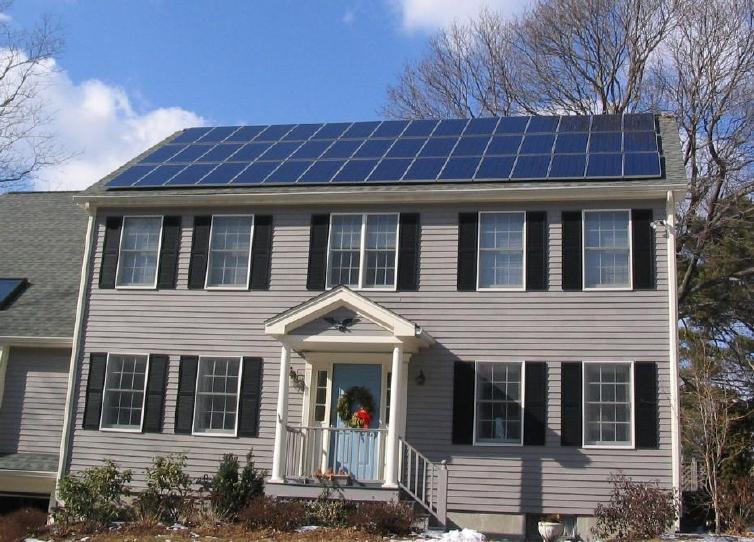 Chris - Dave, what have you had your eye on as something likely to happen in 2014?
Chris - Dave, what have you had your eye on as something likely to happen in 2014?
Dave - It's something which has been gently building up, and which is starting to get momentum, and that's the price of renewable energy and particularly solar power. For a long time it has been thought of as a very expensive form of power and everyone has been having to put big subsidies on it. And that means that the power companies can control it because if you're getting too much of it, you can cut the subsidy and it will make sense. But what's starting to happen, particularly in sunny places - Arizona, Hawaii, places like that - already, it's actually cheaper to put up solar panels and make your own electricity than it is to buy electricity off the electricity company. And that all of a sudden does all sorts of scary things to electricity grids, because why wouldn't you? If you live there, it makes sense to chuck up some solar panels and then you don't use any power during the day. This is great for global warming, but the electricity companies are going to be having a nightmare, because they're set up to produce all the power, but if all of a sudden they don't need to produce any power when it's sunny, they need to suddenly completely redesign their systems and it all gets very very interesting.
Chris - Doesn't that just mean that they have to think dynamically about (a) how they make their power more turn-on-and-off-able - excuse the horrible phrase, but you know what I mean. And also about energy storage, because we've not really got very much investment either currently or previously in mechanisms to store energy. We're very good at getting rid of it. We're very good at not producing it. We're very good at over-producing it. But when we do over-produce it we just make energy very cheap for people, encouraging people to use it. Why don't we invest more in storage systems?
Dave - In mean, it's a big problem. It's a very difficult problem. I mean, you can pump water up hills, but you actually run out of hills quite quickly, especially in a country like Britain. So there are all sorts of people looking at ways of storing it in very large batteries, or in pumping heat from one place to another, but this does suddenly become a very important technology when you've got all of this cheap solar power. And it's getting cheaper.
Chris - Do you think the problem will do away to a certain extent when we get better at harnassing hydrogen as a means of storing energy, because hydrogen is obviously an ideal source because you merge it with hydrogen and make water, and then you reverse that equation and make oxygen and get your hydrogen back. So it's a good fuel because it's clean but eminantly useable. But the danger at the moment has put people off.
Dave - The other thing is the efficiency of the process. Unless you use very expensive catalysts such as platinum, you end up losing a lot of the power in turning water into hydrogen, and then turning it back again. So in fact these days they mostly make hydrogen by breaking apart natural gas, rather than breaking down water which is how you would like them to do it.
Chris - Now you opened by saying that this is something to keep an eye on for the year ahead. Are you saying, then, that your prediction for 2014 is an increase in renewable supply, but also a problem brought about by that?
Dave - It's already kicking in in places like Arizona and Spain are starting to charge people if they've got solar panels on their roof, which seems crazy after everyone has been encouraging them to put them on there. I think it's going to pick up, and solar panels are probably going to keep getting cheaper. But that's going to start making life interesting for power companies.
- Previous Robotic Telesales
- Next The Rosetta Mission









Comments
Add a comment